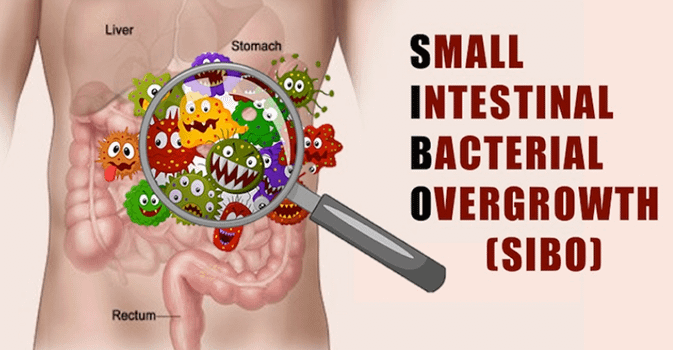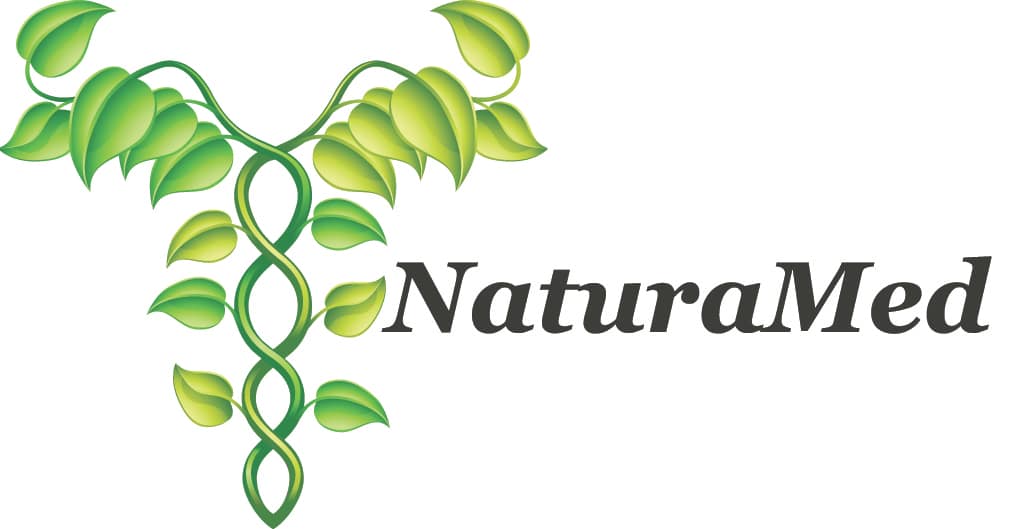
What is SIBO?
SIBO (Small Intestinal Bacterial Overgrowth) treatment is often necessary for many people with chronic gas, bloating and abdominal pain.
As an increasingly recognized health problem, SIBO occurs when bacteria of the microbiota that normally occupy the colon migrate into the small intestine, feast on carbohydrates and multiply. This causes inflammation of the intestine as well as various symptoms throughout the body, most often in the digestive tract. This article focuses on how to cure SIBO and the natural treatment of SIBO.
Treatment for SIBO
Fortunately, according to a new study, there is a natural SIBO treatment that is as effective (or superior to) as conventional SIBO treatment with antibiotics. [1] Doctors at John’s Hopkins and the University of Pittsburgh have shown that natural treatment of SIBO with herbal antimicrobial supplements is as effective as rifaximin, one of the classic antibiotics in SIBO [1].
A group of 104 seropositive patients for newly diagnosed SIBO either took a high standard dose of rifaximine (1200 mg daily) or two capsules twice daily of each of the two supplements in one of two following herbal protocols:
- Dysbiocide and FC Cidal (from Biotics Research) or
- Candibactin-AR and Candibactin-BR (by Metagenics)
The products were specifically selected because they contained antimicrobial plants, such as oregano oil, thyme oil, berberine extracts and wormwood. These medicinal herbs broadly cover the types of bacteria most commonly involved in the SIBO.
How to treat SIBO naturally
Of the patients who received a herbal treatment, 46% presented no evidence of SIBO in follow-up tests, compared to 34% of rifaximin users. Individuals using natural SIBO treatment were significantly more likely to have a negative SIBO test at follow-up than those taking rifaximin.
Participants who did not improve on rifaximin were then prescribed one of the herbal protocols or a triple antibiotic (clindamycin, metronidazole, neomycin) for an additional four weeks. Of the 31.8% non-responders to rifaximin who subsequently took herbal treatment, 57.1% tested negative for the SIBO test, compared with 60% for those taking triple antibiotic therapy.
Adverse reactions reported in patients taking rifaximin included anaphylaxis, urticaria, diarrhea and Clostridium difficile, while only one case of diarrhea and no other side effects were reported in the treatment group herbal.
“Medicinal plants are at least as effective as rifaximin for SIBO resolution …” concluded the authors of the study.
Diet combination for SIBO with herbal antimicrobials
Naturopaths and integrative medicine doctors often advise patients to follow an SIBO diet with antimicrobial therapy for best results. An SIBO diet is primarily a low carbohydrate diet because bacteria use carbohydrates as a source of energy and ferment them into gas. The SIBO diet can directly reduce symptoms by decreasing the amount of gas produced and possibly reducing the overall bacterial load as food supplies decrease. [2]
The SIBO diet is a combination of the specific carbohydrate diet (SCD) or gastrointestinal diet and psychological syndrome (GAPS) with elements of the low FODMAP diet. With SCD and GAPS, all grains, starchy foods, lactose, sweeteners other than honey and beans are eliminated. Eliminating these normally well-absorbed carbohydrates is essential in SIBO because these sources of polysaccharides and disaccharides feed inappropriate bacteria into the small intestine, creating symptoms and worsening the problem.
By further eliminating the highly fermentable fruits and vegetables recommended in the low FODMAP diet, the food source of the bacteria is further reduced. The low FODMAP diet is a treatment regimen for irritable bowel syndrome and has not been specifically designed for SIBO. Therefore, low FODMAP does not eliminate all sources of polysaccharides and disaccharides, such as cereals, starch, starchy vegetables and sucrose, except when combined with SCD or GAPS.
The best way to solve the SIBO
For best results, follow the SIBO diet for three to four months. Most of the bacterial growth is eliminated by the fourth week. However, practitioners have found that it is usually necessary to follow the diet for an additional three months for more permanent eradication. [2] Combine diet with a natural approach to SIBO with supplements containing natural antibiotics such as essential oil of oregano, thyme, berberine extracts and wormwood for SIBO for a more effective approach .
References
[1] Glob Adv Health Med. 2014 May;3(3):16-24.
[2] Townsend Ltr. 2013 Feb/Mar;355(56):85-91.


Recent Comments